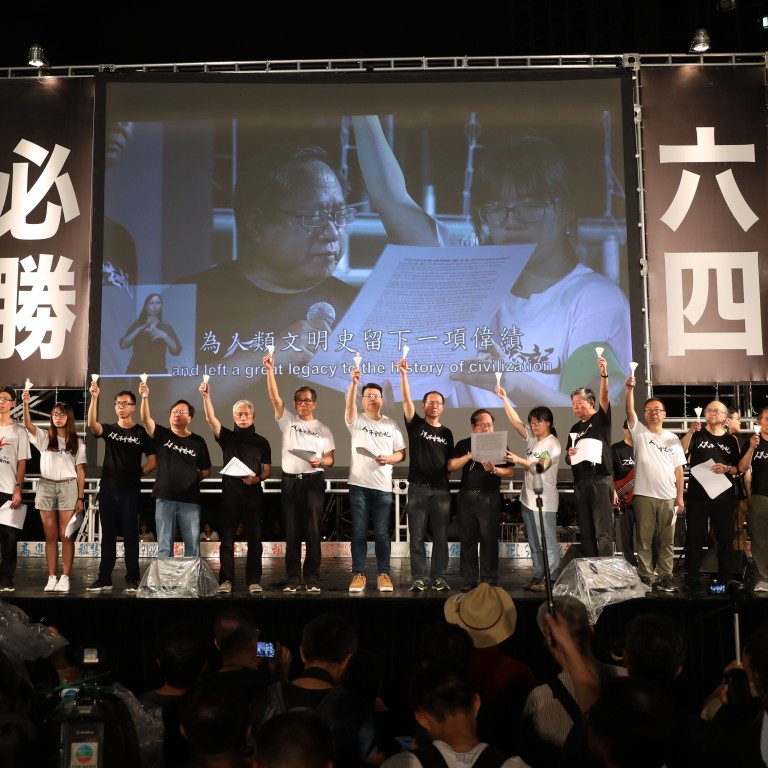
Hong Kong’s biggest teachers’ union quits alliance behind annual Tiananmen Square vigil, citing ‘worsening situation’
- Professional Teachers’ Union confirms it decided to quit Hong Kong Alliance in Support of Patriotic Democratic Movements of China last month
- Alliance, which used to have more than 200 member groups, began seeing wave of withdrawals in April
The opposition-leaning Professional Teachers’ Union (PTU) confirmed to the Post on Thursday that it decided to quit the Hong Kong Alliance in Support of Patriotic Democratic Movements of China last month following a meeting of its 39-member executive committee.
“We made the decision grudgingly, but given the worsening situation we had to do so,” PTU president Fung Wai-wah said. “Following a discussion, the executive committee agreed to take the step collectively although we did not conduct a vote.”
He added: “But our stance on vindicating the 1989 June 4 crackdown remains unchanged … We do not rule out working together with the alliance sometime in the future, depending on the situation by that time.”

Alliance spokesman Simon Leung Kam-wai said he believed the union’s withdrawal would not have a significant impact on the group’s operation, but he respected its decision to quit.
The alliance has five “operational goals”, comprising the release of dissidents, vindication of the 1989 pro-democracy movement, accountability for the Tiananmen Square crackdown, an end to “one-party rule” in mainland China and to build a democratic country.
Tiananmen Square vigil organisers dismiss entire staff, committee size halved
Luo Huining, director of the central government’s liaison office, delivered a speech in June in which he said voices calling for an end to one-party rule were the “real enemies of the city’s prosperity and stability”.
Luo said Beijing had imposed the security law on Hong Kong because anti-China forces were threatening to derail implementation of the “one country, two systems” principle.
The alliance, which used to have more than 200 member groups, started to see a wave of withdrawals from April, including by the Hong Kong Association for Democracy and People’s Livelihood and district councillor Leung Yiu-chung’s office.
Simon Leung said the alliance had not kept count of the number of groups that had quit as it only looked at the figures at the end of each year.
The organisation, which has insisted it will keep operating, announced last month that seven of its 14 committee members had quit, while all of its full- and part-time staff, fewer than 10 employees, would be laid off by the end of this month.
Civil Human Rights Front facing police probe over its operations
Political scientist Chan Wai-keung, of Polytechnic University, said he suspected that PTU wanted to distance itself from the alliance.
“PTU is a lawful organisation and it might be sending candidates to elections later,” he said. “Probably, it does not want to take any chances.”
Chan said he believed the government was trying to “dry up” the alliance.
“When more member groups quit because of fear or pressure, the alliance will one day not be able to operate, then it will have to close,” he said. “So, the government does not need to take any action.”
The alliance was incorporated in June 1989 as a limited company. It is also a member group of the Civil Human Rights Front, a coalition of pro-democracy groups.
But that organisation is being investigated by police over its finances, its role in a petition handed to a United Nations agency urging the Beijing and Hong Kong governments to improve human rights, and its failure to register with authorities under the Societies Ordinance.


